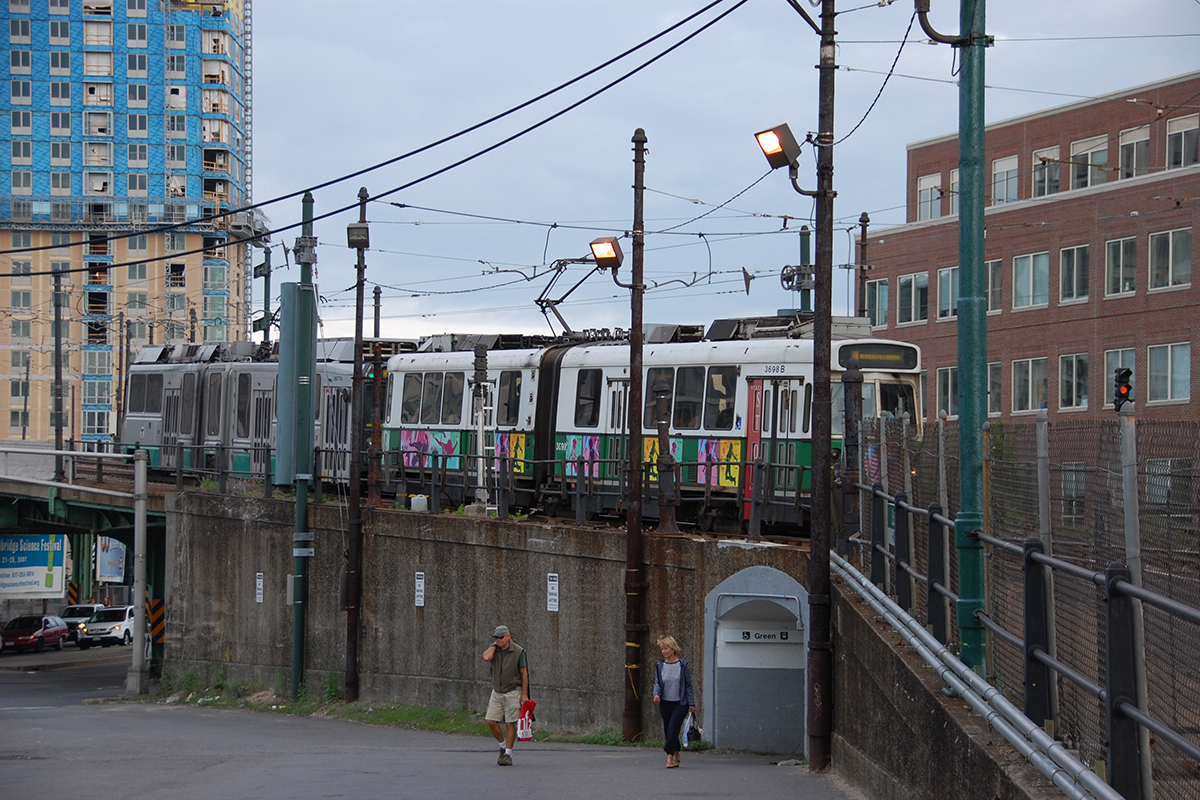Can the Green Line Extension Be Saved?
The MBTA can slash the Green Line Extension’s ballooning costs by rebidding the project and scaling it back. That’s the advice the MassDOT board and MBTA fiscal control board got from staff and consultants today at a packed meeting, after elected officials from several towns and Somerville residents spent more than an hour asking them not to cancel the project.
“Let’s build this thing,” Somerville Mayor Joe Curtatone said, exhorting the board not to kill the 4.5-mile light-rail project in his city and Medford. “Because if we can’t build this, what can we build?”
Rafael Mares of the Conservation Law Foundation, a longtime advocate for the Green Line Extension, urged the board to get creative to cut the project’s cost, which exploded from $2 billion to $3 billion in 2015 alone. “You’ve got to be ready to let other contractors bid,” Mares said.
That advice was echoed by the T’s consultant, Geoff Yarema of the law firm Nossaman. He recommended that the MBTA get out of its main contracts with its current construction contractor and rebid the project with a different process. If it does, he says, 18 contractors have expressed an interest in submitting bids.
The Green Line Extension may be redesigned first. The T could save 10 to 40 percent of the extension’s cost by choosing smaller stations, a smaller maintenance garage, and a different track alignment, an engineering consultant hired by the T said. The Union Square station planned for Somerville could be replaced with a shuttle bus or commuter rail station, the consultant added.
Green Line Extension advocates hoping to hear that the state and MBTA are committed to the project left the meeting disappointed.
“We are not in a position to take cancellation off the table,” transportation secretary Stephanie Pollack said. Cancelling the project, she said, could free up hundreds of millions of dollars to spend on the T’s existing, badly outdated system.
But after today’s meeting, killing the Green Line Extension looks more like a bad option or a negotiating bluff. Canceling it would cost the state $720 million, MBTA attorney John Englander warned the board, including wind-down costs and money already spent. The T would get 24 new Green Line cars that it needs anyway, for $182 million. But the state would still lose $540 million in state money, with only some flood control and some parcels of land show for it, while forgoing $1 billion in federal funds.
Massachusetts is legally obligated to build the Green Line Extension under a Clean Air Act agreement. But Englander told the board that’s not set in stone. The state could replace the Green Line Extension with another project that offers even more clean-air benefits, he said. Projects have been dropped from the Clean Air Act list before, he added, including the re-extension of the Green-E Line through Jamaica Plain and a connector for the Red and Blue lines.
Board members sounded uncertain about what to do next. Some said all options were still on the table, hinting they may still kill the project. Others seemed to lean toward retooling it. Braintree Mayor Joe Sullivan, a MassDOT board member, said the Green Line Extension “needs a significant dose of tough love—affection for the project, but discipline.”



